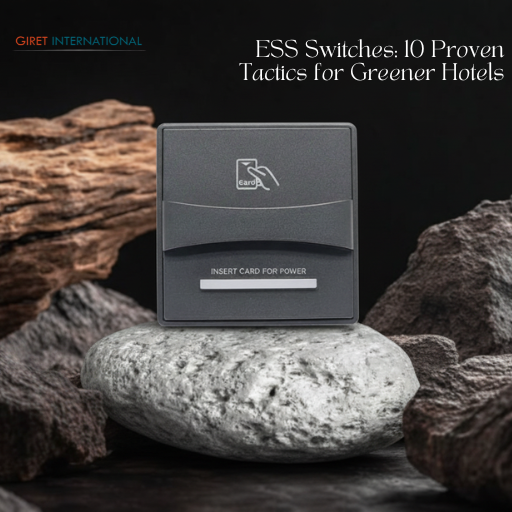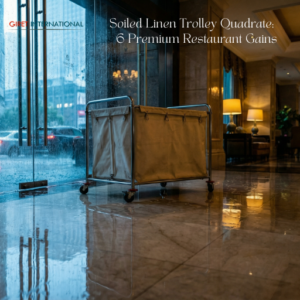1. ESS switches: Introduction to Greener Hotel Operations
The hospitality industry is undergoing a rapid and collective shift toward sustainability-driven operations, and ESS switches are now positioned at the center of this transformation. Hotels today face higher energy costs, growing pressure to meet environmental commitments, and a global audience of travelers who actively prefer staying in climate-conscious properties.
This shift is no longer limited to luxury or eco-resorts. Business hotels, city hotels, boutique stays, serviced apartments, and even budget chains are restructuring their energy architecture because long-term operational success now depends on embracing green technologies. In this evolving environment, energy waste especially inside guest rooms has become one of the biggest financial leaks and environmental liabilities for hotels.
Room-level automation tackles all of these challenges at once. It offers an intelligent, self-regulating system that ensures electricity is consumed only when required. No manual checks, no staff verification, and no dependency on guest behavior. The result is a hotel that behaves efficiently at every moment, even when no one is watching.

In other words, automation builds a green foundation that continues working day and night, quietly saving energy and protecting assets while improving guest satisfaction.
2. How ESS switches Reduce Waste Through Smart Controls
Energy waste in hotels is mostly behavioral. Guests leave the room without turning off lights. They forget AC settings. They leave chargers and kettles plugged in. Often, rooms remain powered even after checkout until housekeeping arrives.
By integrating ESS switches, hotels remove human error from the equation entirely. Once a guest inserts their RFID or MIFARE card, the room activates. When the card is removed, electricity shuts off automatically after a carefully calibrated delay usually 20 to 30 seconds to ensure a comfortable exit and safe shutdown sequence.
This level of precision makes a dramatic difference across large properties, especially those with 80+ rooms. A single room running its AC and lights for two unnecessary hours a day may not seem significant, but when multiplied across dozens of rooms and hundreds of days, the wastage becomes massive.
Smart controls create a predictable electrical profile that makes energy saving effortless. It’s one of the few upgrades that reduce waste without touching guest comfort.
3. Why Modern Hotels Depend on ESS switches for Sustainability

Today’s hotel managers recognize that sustainability is not a marketing angle it’s an operational requirement. Throughout the world, hotels are expected to demonstrate responsible energy behavior. Guests increasingly ask questions, brands mandate environmental policies, and certification bodies audit properties more frequently.
This is why ESS switches have become a major pillar in modern sustainability planning. They allow hotels to:
- Reduce unnecessary power consumption
- Improve performance of HVAC systems
- Extend the life of electrical infrastructure
- Enhance brand reputation
- Achieve better sustainability audit scores
Hotels embracing structured power logic report reduced electricity bills, easier compliance with global standards, and noticeably safer room environments.
This shift also aligns with the international hospitality movement toward carbon neutrality. Energy efficiency is one of the first steps in reducing emissions, and room automation is one of the easiest, most measurable ways to get there.
4. ESS switches and Energy-Efficient HVAC Management
HVAC systems typically represent the highest energy load inside guest rooms. Guests frequently leave AC units running at maximum cooling levels while they go out for meals, sightseeing, or meetings. Even small temperature differences, such as 18°C vs. 22°C, significantly increase compressor load and energy consumption.
By incorporating ESS switches, hotels ensure that HVAC systems run only when a guest is present. This stops long, wasteful cooling cycles that overburden compressors, degrade coils, and reduce overall equipment lifespan. The controlled shutdown also prevents electrical overheating a frequent issue in highly humid or warm climates.
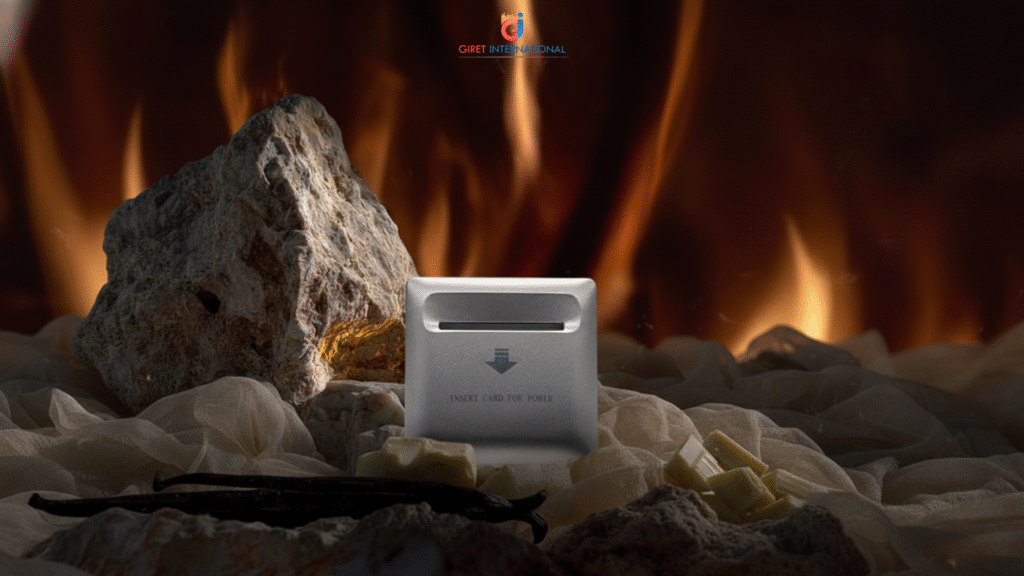
This single automation feature has been shown to reduce HVAC energy consumption by 25–35%, depending on building insulation, room size, and occupancy patterns. Over a year, this translates into substantial savings across the entire property.
More importantly, HVAC control contributes directly to a hotel’s carbon reduction strategy. Fewer cooling cycles equal fewer emissions associated with electricity production.
5. Cutting Power Leakage with ESS switches Automation
Phantom load, also known as standby power, is one of the most overlooked causes of energy waste in hotels. This occurs when appliances draw power even when they are not actively in use. Chargers, televisions, smart devices, and mini-fridges consume energy continuously, especially in properties with modern entertainment systems.
A properly installed ESS switches system eliminates phantom load by shutting down power to sockets and appliances the moment guests leave the room. This not only reduces waste but also lowers heat buildup inside furniture, behind TV panels, and in wiring channels areas where overheating could pose safety risks.
The combined effect is lower electricity consumption and improved longevity for guestroom equipment.
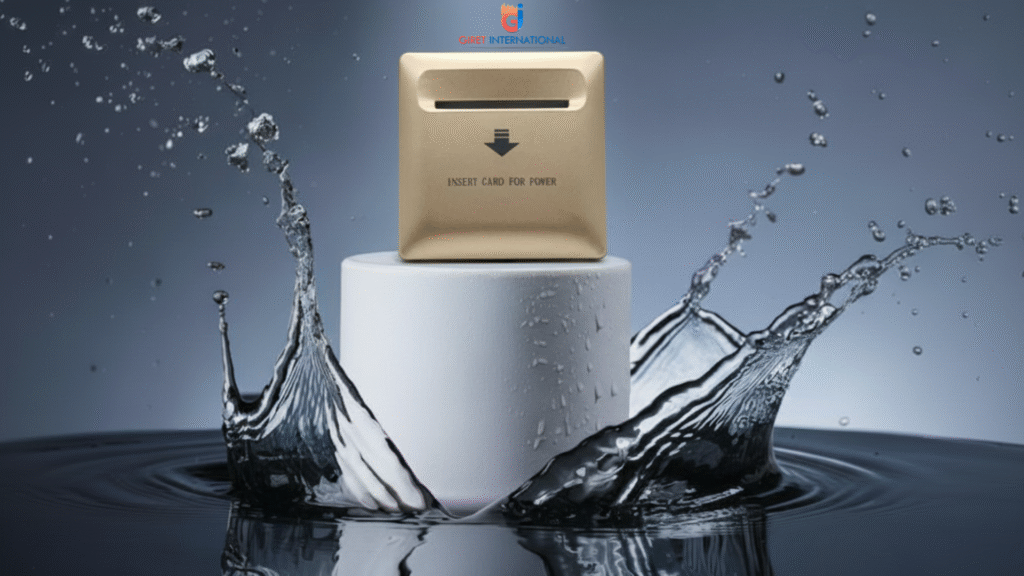
6. ESS switches for Lighting, Appliances, and Load Safety
Guestrooms contain multiple lighting layers that contribute to ambiance and comfort, but they also create significant energy waste when left on unnecessarily. Guests often forget to turn off bathroom lights, dressing mirror lights, and side lamps. Across tens or hundreds of rooms, this adds up quickly.
ESS switches ensure that lights turn off automatically when the room is unoccupied. This helps hotels maintain a sustainable lighting plan without compromising design or guest comfort.
In addition to lighting, appliances like kettles, irons, and grooming devices can cause safety issues when left plugged in. Automated shutdown eliminates these risks and ensures a controlled, environmentally responsible room environment.
Hotels benefit from lower electric loads, fewer overheating incidents, and smoother energy management.
7. Operational Gains Achieved Through ESS switches Integration

Beyond energy efficiency, hotels experience strong operational improvements after adopting systems like ESS switches. Engineering teams see fewer emergency calls. Housekeeping encounters rooms in predictable conditions. Facility managers gain clearer visibility into overall electrical health.
Operational gains include:
- Reduced breaker trips
- Lower wiring stress
- Fewer AC malfunctions
- Consistent temperature during turnover
- Enhanced staff safety
Hotels also find that automated rooms reduce staff workload. There is no need for manual power checks, making daily operations faster and smoother.
8. ESS switches as a Cornerstone of Green Certifications
Green building certifications reward hotels that demonstrate strong energy management. Frameworks like LEED, IGBC, GRIHA, and EarthCheck specifically evaluate occupancy-based controls and automated power-saving technologies.
Using ESS switches, hotels can show measurable reductions in:
- Energy consumption
- Carbon footprint
- Electrical stress
- Peak load

Because these systems provide consistent and trackable results, audits become easier. Certification bodies often consider automated energy controls essential for sustainable property management.
9. Additional Green Tactics Enabled by Room Automation
Automation opens the door to additional sustainability initiatives. When hotel rooms operate on predictable load cycles, management can:
- Reduce generator hours
- Implement power scheduling more effectively
- Integrate solar or renewable energy systems
- Reduce replacement cycles for appliances
- Maintain a healthier electrical infrastructure
Guest awareness also improves. Automated rooms send an implicit message that the hotel takes sustainability seriously, shaping positive guest perception and encouraging responsible behavior.
10. How to Select Models That Support Green Goals

Choosing the right system requires evaluating several factors:
- Total load per room
- Durability of glass or polycarbonate panels
- Compatibility with existing RFID locks
- Preferred shutdown delay
- Heat management design
- Wiring quality requirements
Hotels should work with trusted suppliers to ensure they select models that match their operational needs and long-term sustainability goals.
Installation Details That Enhance Efficiency
Precision installation ensures that automation delivers maximum results. Hotels must use high-quality wiring, appropriate circuit allocation, and proper mounting techniques. Technicians should test delay cycles, wiring temperature, and load behavior before room activation.
Correct installation enhances sustainability outcomes by preventing electrical stress and ensuring consistent behavior across rooms.
Real Sustainability Improvements in Hotels
Eco-Friendly Resort Case Study
A coastal resort reduced energy usage by 32% after integrating automation in all rooms. AC misuse and lighting waste dropped sharply, yielding immediate savings.
Business Hotel Improvement
A busy corporate hotel struggled with standby power waste. After installing automated systems, monthly energy bills became more predictable and significantly lower.
Heritage Property Upgrade
A heritage property with fragile wiring reported fewer overheating events and reduced electrical stress due to stable power cycles.
These examples prove that automated power control enhances sustainability across hotel categories.
Conclusion
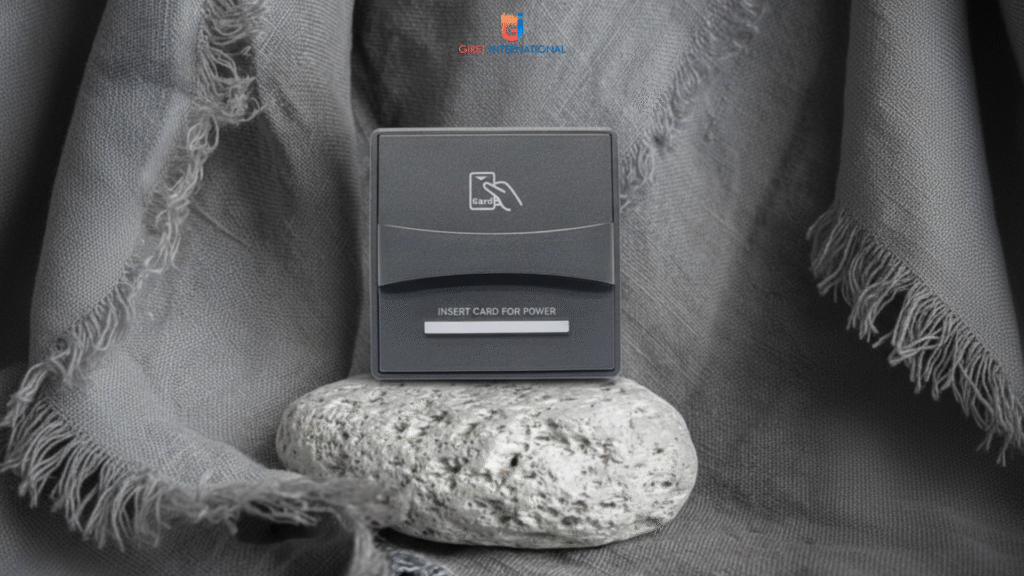
Sustainability is no longer optional in hospitality. It is a core requirement for profitability, brand reputation, operational stability, and guest trust. Room-level automation is one of the most impactful ways hotels can reduce waste while strengthening guest experience.
By adopting systems that minimize idle consumption, manage HVAC intelligently, and eliminate power leakage, hotels build a greener future one room at a time.
➡ About Giret International
➡ Contact Us
➡ Hospitality Products
Instagram | Facebook | Pinterest | YouTube | X (Twitter)

